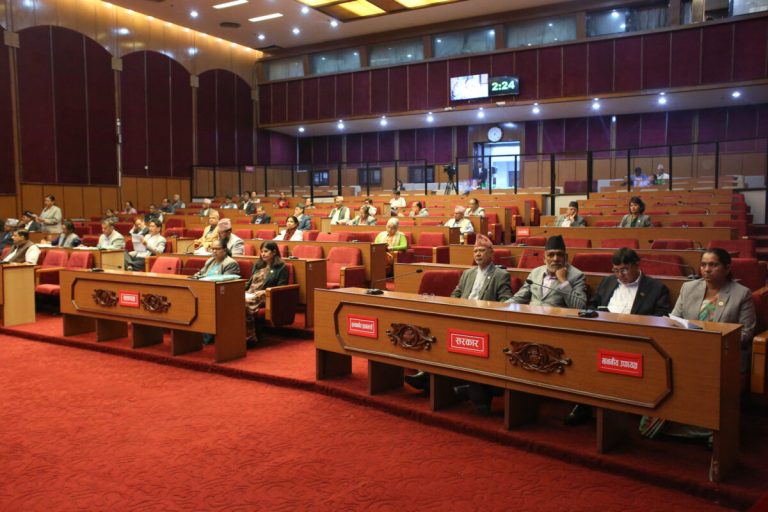The National Assembly will meet today at 11:15 AM at the Federal Parliament Building in New Baneshwar to hold a major session focused on budget and key legislation.
Ministers will respond to questions raised earlier about the Appropriation Bill, 2082. These responses cover several top government offices. These include the Office of the President, the Vice President, the Prime Minister and Council of Ministers, and the National Planning Commission. Other departments under review also include many ministries responsible for key national services.
Deputy Prime Minister and Finance Minister Bishnu Prasad Paudel will play a central role in today’s session. He will present a motion to pass the Appropriation Bill, 2082. This bill, which outlines government spending for the year, has already been sent from the House of Representatives along with a message.
In addition to this bill, Finance Minister Paudel will also present two other important bills. These are the “Finance Bill, 2082” and the “National Debt Collection Bill, 2082.” Both were also received from the House with official messages and now await discussion in the National Assembly.
The Finance Minister is also set to present the “Customs Bill, 2080.” This bill, which was passed in the lower house earlier, deals with laws about customs and trade regulations. It aims to improve customs procedures and revenue collection at the national level.
Another significant item on today’s agenda is the “Federal Civil Service Bill, 2080.” The Secretary of the National Assembly, Surendra Aryal, will present the message received from the House of Representatives regarding this bill. The bill outlines the structure, rules, and conduct for federal civil servants across the country.
Today’s session is expected to be a crucial one for Nepal’s legislative process. With multiple financial and administrative bills under review, lawmakers will have the chance to shape how public funds are spent and how services are managed. These bills also aim to support transparency, efficiency, and better management of public duties.
The Parliament budget session comes at a time when the country is focusing on stability and economic recovery. Lawmakers are under pressure to act quickly and responsibly, especially in financial matters that affect the entire population.
The Appropriation Bill, in particular, will be closely watched. It covers planned spending for all major government offices and services. Its approval will allow the government to move ahead with its yearly plans and development projects.
The Finance Bill and Debt Collection Bill are also essential. They set rules for managing government income and recovering national debt. These help ensure a steady flow of funds for public programs and services.
Meanwhile, the Customs Bill is key to improving trade practices. It aims to modernize customs systems and make it easier to do business in Nepal. Efficient customs policies can also increase national revenue and boost exports.
The Federal Civil Service Bill outlines job rules, responsibilities, and rights of government employees. It is expected to help in creating a more professional and accountable civil service.
The National Assembly’s role in passing these bills is vital. By debating and voting on them, the Assembly ensures each law is properly reviewed. Today’s actions will likely have a long-term impact on governance, finance, and public service delivery in the country.
As discussions unfold, the public and media will be watching closely to see how lawmakers respond to these responsibilities. Decisions made today will affect many aspects of daily life, from how taxes are collected to how public services are delivered.
With the Parliament budget session in full swing, the nation looks to its leaders to provide effective solutions and strong governance through these legislative actions.


